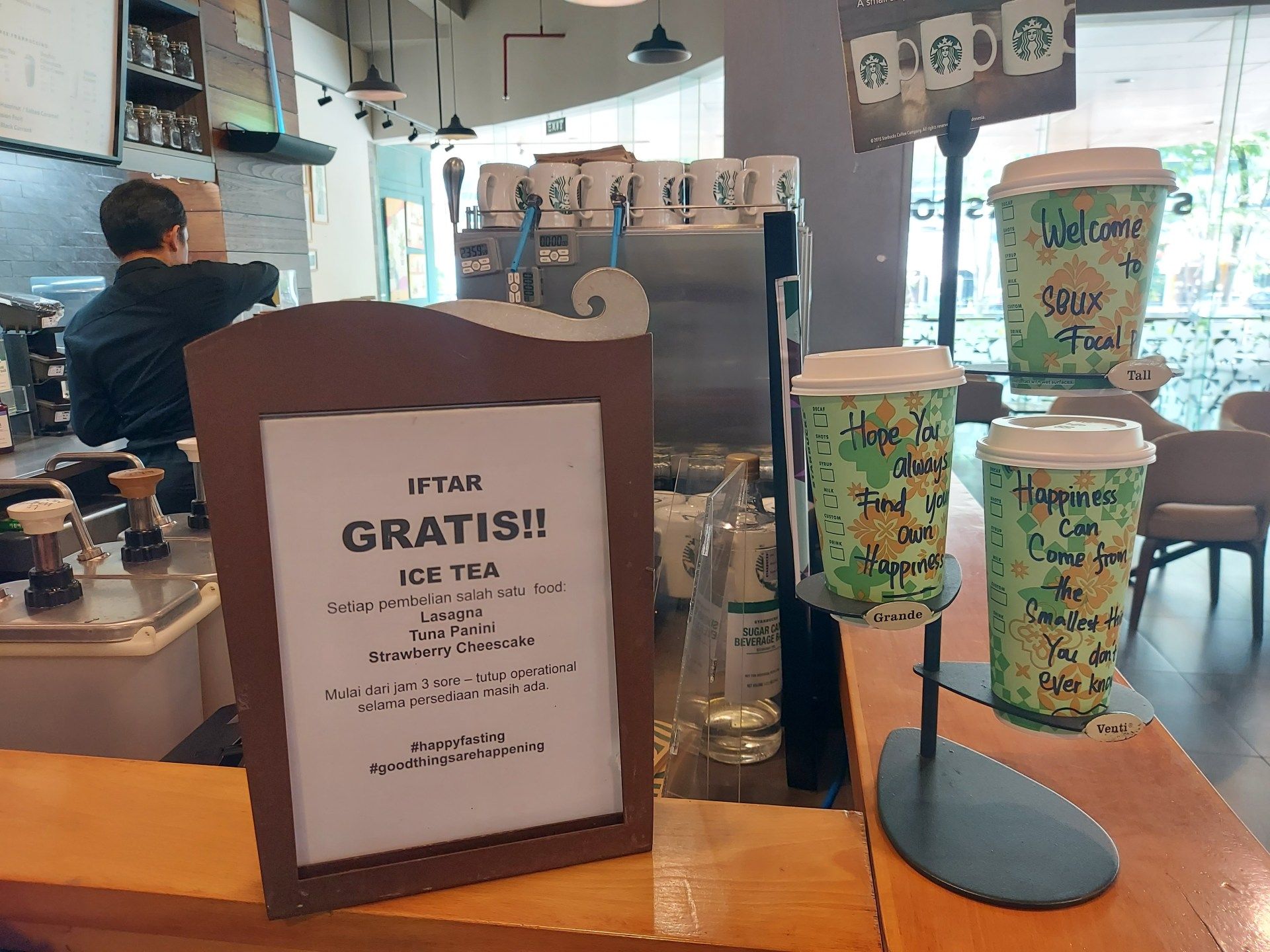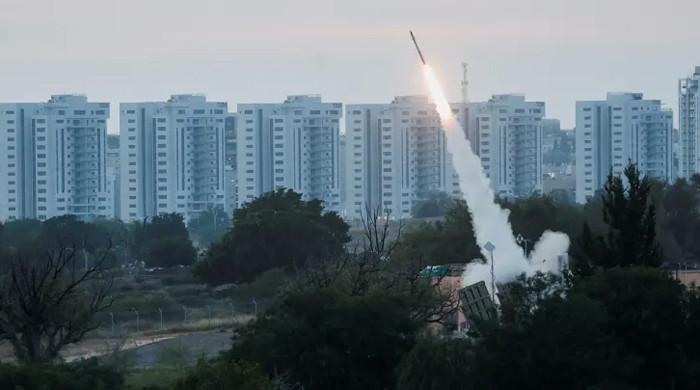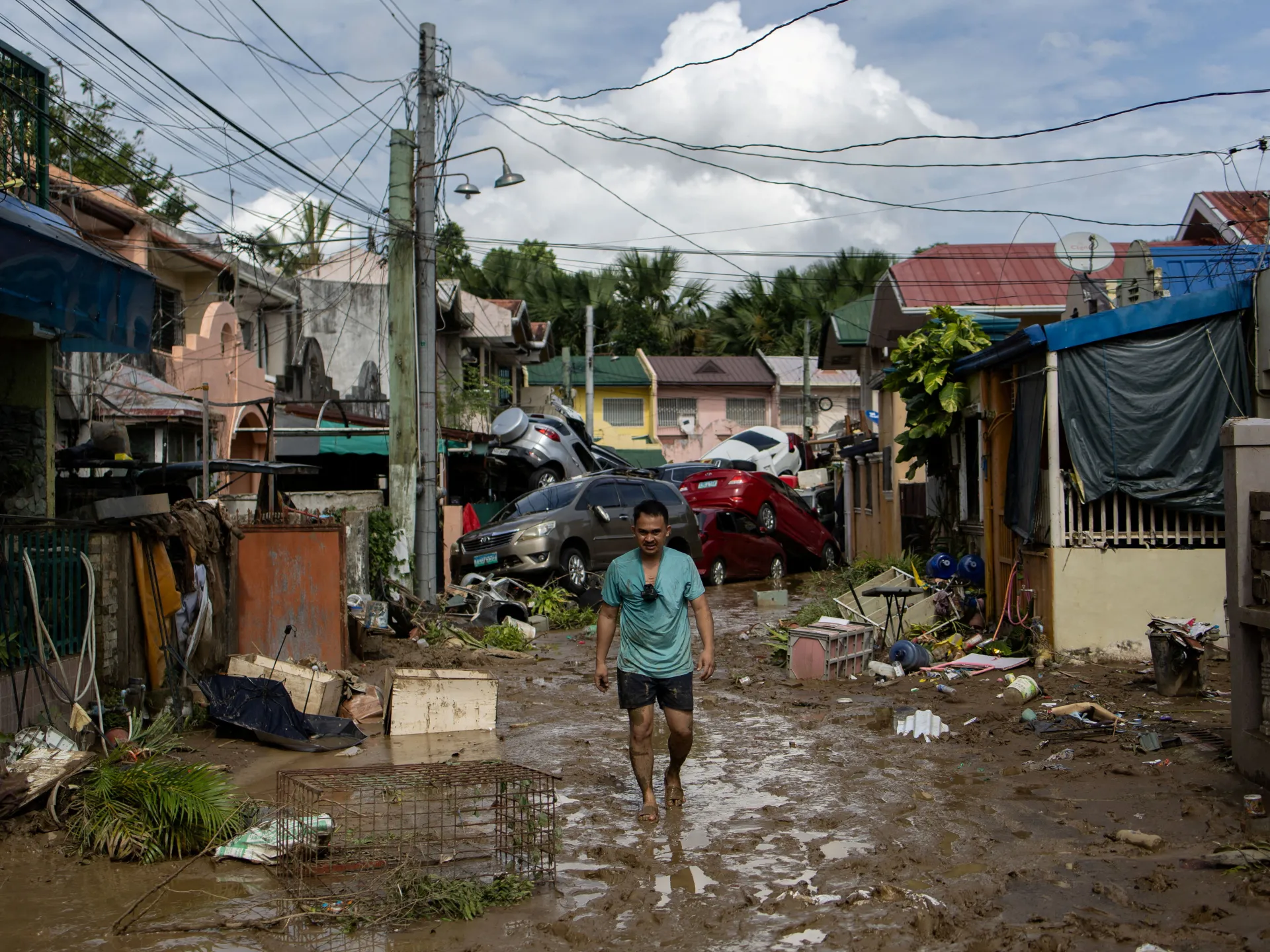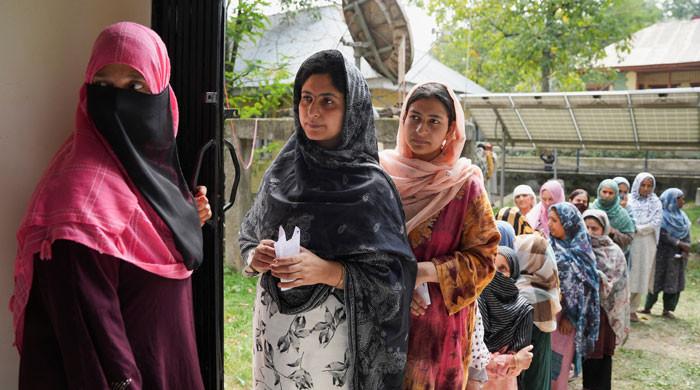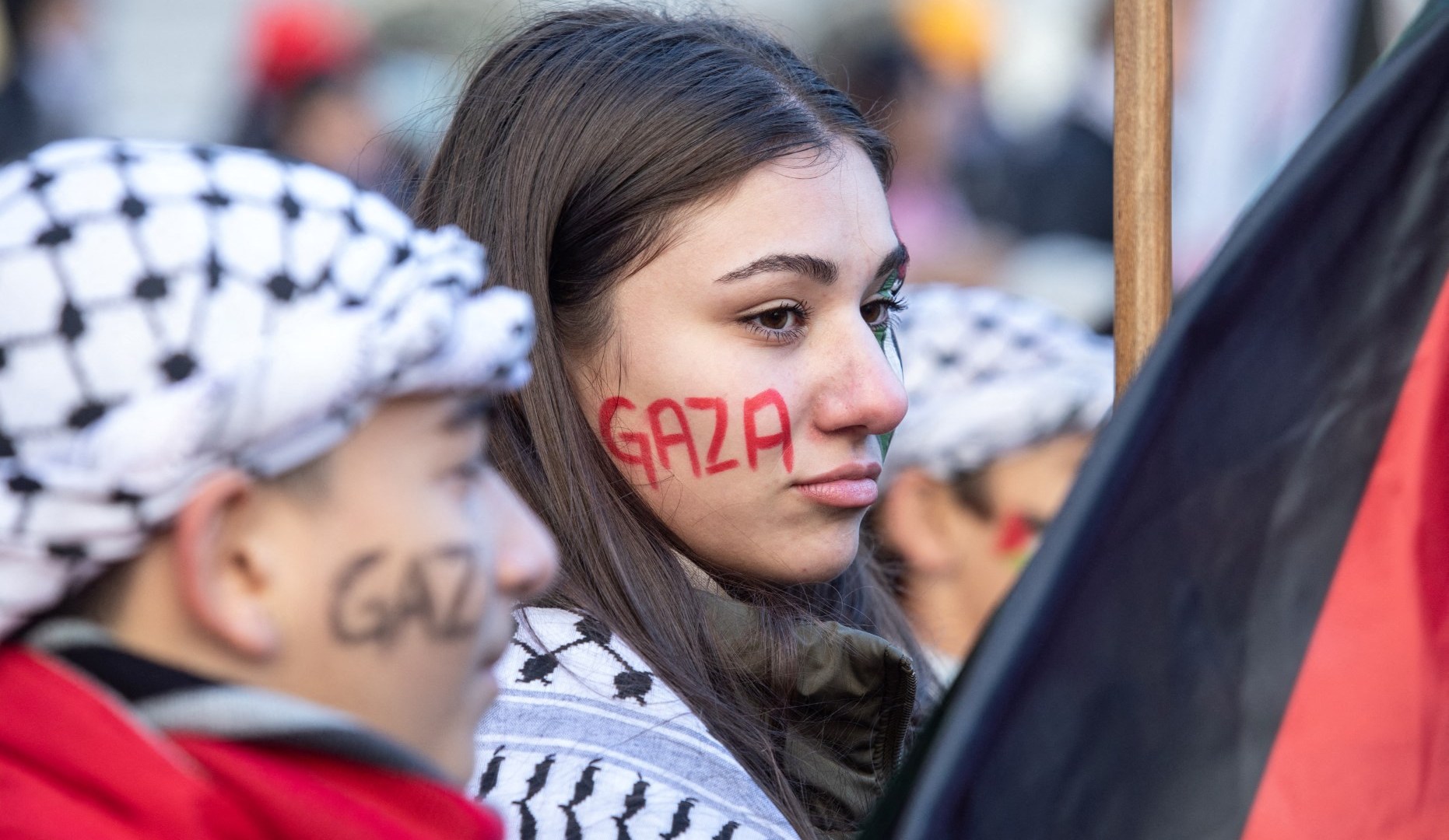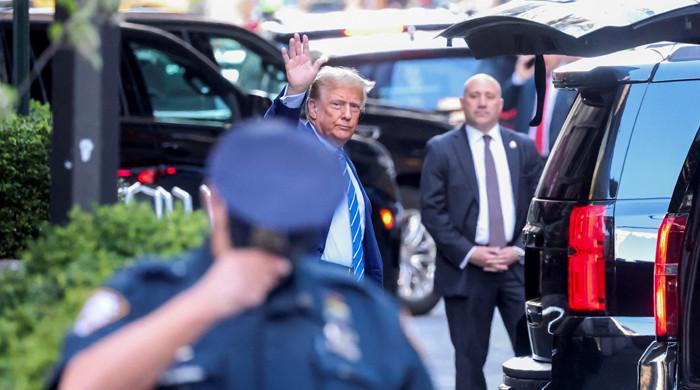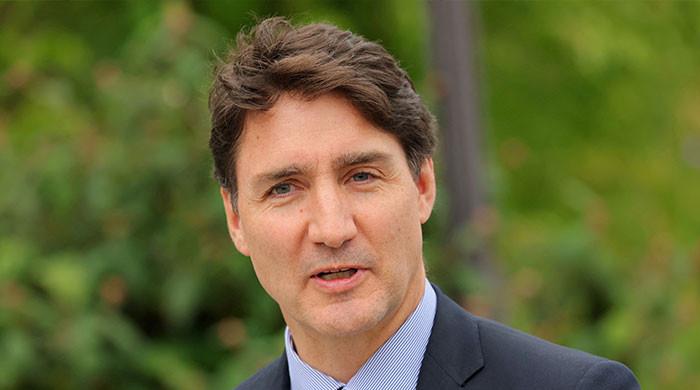Medan, Indonesia – Normally, during the holy month of Ramadan, businessman Putra Kelana has breakfast with his family and friends at several different food establishments in his city in North Sumatra.
But this year, one establishment won't be on the menu: McDonald's.
Kelana has been boycotting the fast food chain since October, when McDonald's Israel announced on social media that it had donated thousands of free meals to the Israeli military amid its war in Gaza.
“It's not so much an outright boycott, but rather a feeling of being deeply dissatisfied with Israel,” Kelana told Al Jazeera.
“I used to have a McDonald's sticker on my car that gave me discounts when I used the drive-thru, but I ripped it off when the war started.”
“If I could go to Gaza to help fight Israeli forces, I would. Israelis kill Muslims every day. Since I can't go there in person, the best thing I can do is show my support by not using products affiliated with Israel.”
Kelana, who joined a Whatsapp group where members regularly post updated lists of products to avoid, also stopped drinking Aqua bottled water following reports that French producer Danone invested in several Israeli companies and startups.
Across Southeast Asia, calls to boycott products perceived to have ties to Israel are having a notable impact on top brands' bottom lines.
In February, McDonald's said the war was part of the reason international sales rose just 0.7 percent during the fourth quarter of 2023, well below a 16.5 percent expansion during the same period. from the previous year.
“The most pronounced impact we're seeing is in the Middle East and in Muslim countries like Indonesia and Malaysia,” McDonald's CEO Chris Kempczinski said on an earnings call.
“As long as this conflict, this war continues […] “We don’t expect to see any significant improvement.”
Other brands that have been affected by the boycotts include Unilever and coffee chain Starbucks.
Unilever, which makes Dove soap, Ben & Jerry's ice cream and Knorr bouillon cubes, said in February that sales in Indonesia had seen a double-digit drop during the fourth quarter of last year as a result of “consumer-oriented campaigns.” geopolitically focused. .
Isna Sari, a housewife from Medan, said she has made several changes to her weekly shopping list since the start of the war, including switching from the Unilever-owned Sunlight brand of dishwashing liquid to the local brand Mama Lemon.
“I also started buying Ciptadent toothpaste instead of Pepsodent, which is also owned by Unilever,” he told Al Jazeera. “Not only do these products not support Israel, they are also cheaper.”
“My reason for making these changes is that I don't want to give my money to any company that doesn't support Palestine.”
Despite being attacked for their alleged ties to Israel, the affected companies in many cases have weak ties to the country.
While McDonald's franchisees must pay a fee to the fast-food giant's U.S. headquarters, most establishments, including those operated by McDonald's Israel, are locally owned.
McDonald's franchisees in many Muslim-majority countries, including Saudi Arabia, Oman, Kuwait and the United Arab Emirates, have expressed support for the Palestinians and pledged money to support relief efforts in Gaza.
Danone Indonesia, which operates 25 factories with 13,000 employees in Indonesia, has denied any “connection or involvement in political opinions” related to the war and last year announced that it had donated 13.3 billion Indonesian rupees ($846,000) in humanitarian aid to the Palestinians.
Unilever Indonesia said in November that it was “saddened and concerned” about the conflict and that its products were “manufactured, distributed and sold by the people of Indonesia.”
Starbucks Indonesia, like other international branches of the brand, is owned by a local company, PT Sari Coffee Indonesia.
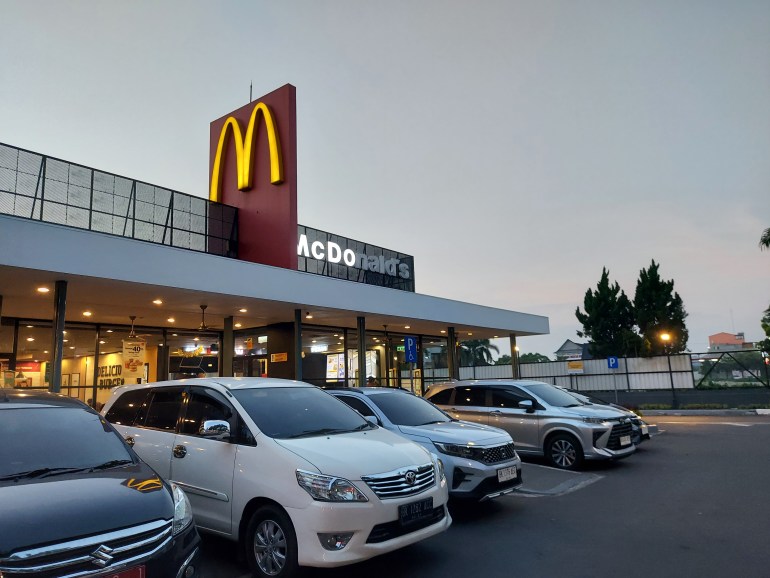
However, brands' efforts to distance themselves from the war continue to fall on deaf ears.
At a Starbucks branch in Medan, an employee who wished to remain anonymous said business during Ramadan had been slower than last year, despite promotions offering free breakfast drinks.
“This is the first year that we changed our opening hours during Ramadan from 10 am to 12 pm. We now close at 8:00 pm instead of 10:00 pm because business is very slow. We had never done that before,” the employee told Al Jazeera.
In Malaysia, Starbucks franchisee Berjaya Food reported a 38.2 percent drop in revenue in the fourth quarter of last year, which it “attributed to an ongoing boycott.”
In March, Berjaya founder Vincent Tan called for an end to the boycott, saying that Starbucks Malaysia is Malaysian-owned and staffed by Malaysians and that “in stores, 80 to 85 percent of employees They are Muslims.”
“This boycott benefits no one,” Tan said.
McDonald's Malaysia, owned by Gerbang Alaf restaurants, last year filed a lawsuit against Malaysia's boycott, divestment and sanctions movement, accusing it of harming its business by falsely linking it to Israel.
Back in Medan, Kelana said she misses McDonald's Ramadan menu, which includes special promotions to break the fast, such as fried chicken in curry sauce, rice, sweet tea and ice cream.
Still, he remains firm in his commitment to not give money to the food chain.
“It doesn't have to be drastic, we just have to do what we can,” he said. “We can make changes through our families by choosing the things we buy, which can be difficult because we tend to buy products out of habit.”
“Who doesn't like McDonald's? Especially the special sauce. But we can live without it.”

